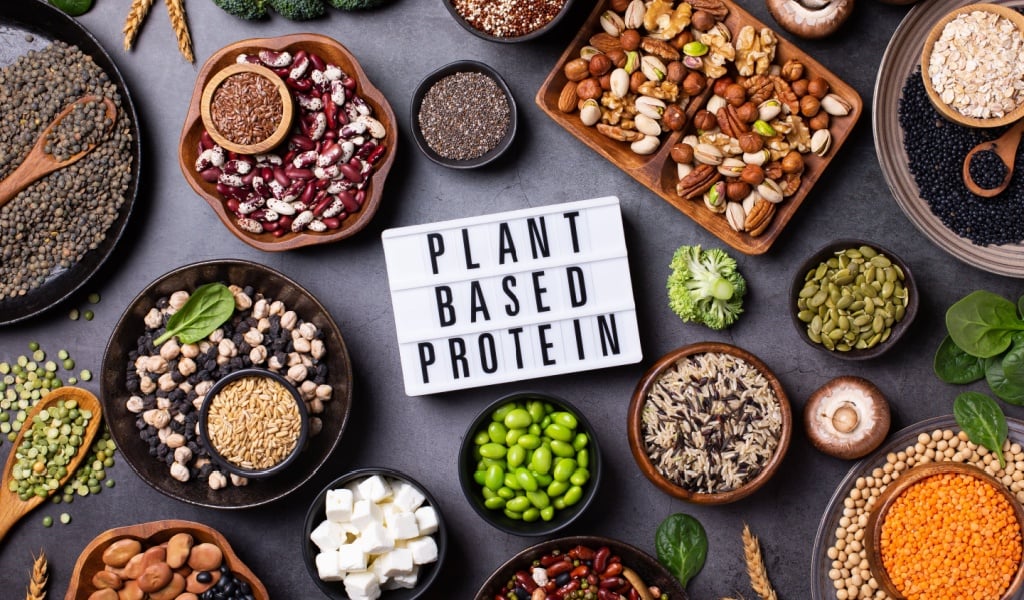Popular food myths often make it difficult to understand what a truly healthy diet is. With so much information out there, getting lost in a wave of misconceptions is easy. Let’s clarify some of these common myths so you can feel more confident in your food choices.

Myth: All Fats Are Bad
For a long time, fats have been given a bad reputation. But the truth is surprising: not all fats are harmful. In fact, fats are beneficial to our health when consumed in moderation.
Many associate fats with weight gain, heart disease, and other health issues. However, these concerns are mainly linked to the overconsumption of saturated and trans fats, such as those found in processed foods, red meat, dairy products, palm oil, and coconut oil. These types of fats can increase LDL (low-density lipoprotein) cholesterol levels, leading to plaque buildup in the arteries and raising the risk of heart disease and diabetes.
On the other hand, monounsaturated fats, like those in olive oil and avocados, and polyunsaturated fats, such as those found in fatty fish, walnuts, and sunflower oil, can reduce the risk of heart disease and support overall cardiovascular health.
In summary, fats play a crucial role in maintaining good health. Rather than eliminating them altogether, focus on the quality and type of fats in your diet.
Myth: Breakfast Is the Most Important Meal of the Day
The belief that breakfast is the most important meal of the day is more a product of tradition and marketing than solid science. This notion originated when Kellogg’s promoted cereal as a nutritious breakfast option, convincing people that breakfast was essential for starting the day right. This idea took hold, and subsequent marketing campaigns reinforced the belief that breakfast was crucial.
Another common misconception is that skipping breakfast can lead to weight gain and reduced cognitive function. However, research shows there is nothing inherently special about eating breakfast. Although the first meal of the day is technically breakfast, it doesn’t need to be eaten early in the morning or consist of specific foods.
Myth: A Juice Cleanse Will Help You Lose Weight Permanently
Juice cleanses have gained popularity among those looking to shed a few pounds or detox their bodies. However, the reality is that a juice cleanse isn’t a sustainable approach to weight loss. When fruits and vegetables are juiced, they lose their fiber content, making the juice a more concentrated source of sugar.
If you rely solely on a juice cleanse for weight loss, you may see initial results, but that’s typically due to a loss of water weight or muscle mass, not fat. Additionally, consuming only juice won’t provide all the essential nutrients your body needs. This lack of nutrients can lead to adverse health consequences, even if you experience temporary weight loss.
Myth: Eating Carrots Will Significantly Improve Your Eyesight
While consuming carrots is beneficial, it won’t magically enhance your eyesight. This may come as a surprise, especially if you grew up hearing this from your parents.
Carrots are rich in vitamin A and other nutrients that support the health of your skin, hair, and eyes, and they should definitely be included in a balanced diet alongside other fruits and vegetables. However, they won’t drastically boost your vision on their own.

Myth: Plant-Based Foods Have Insufficient Protein
Protein is essential for the body to function correctly. While animal-based foods are often considered complete proteins because they contain all nine essential amino acids needed to build protein, plant-based foods may lack one or more of them. However, it’s entirely possible to meet your protein needs with a plant-based diet.
Some of the best sources of plant-based protein include soy-based products like edamame and tofu, as well as legumes such as beans, chickpeas, and lentils.
One significant advantage of plant-based protein is that it’s not associated with high intakes of saturated fats and cholesterol, which are linked to an increased risk of heart disease—something that can be a concern with animal-based proteins.
Myth: Organic Food is Better
People often think organic food is much better than “regular food,” but this isn’t entirely true. While organic foods might have some advantages, it doesn’t mean you must always choose them. Organic products can be expensive, and not everyone can afford them. If buying organic is outside your budget, purchasing regular produce is perfectly okay. Just make sure to wash them thoroughly before eating. The most important thing is to eat plenty of fruits and vegetables, whether they’re organic or not!
Myth: You Can’t Eat at Night to Lose Weight
Some people believe you have to stop eating after a specific time, like after 7 p.m., to lose weight, but this isn’t necessary. Your body doesn’t stop working when it gets late; it just slows down a bit, which means it might take a little longer to digest heavy foods. But this doesn’t mean you need to avoid eating at night altogether. If you’re hungry in the evening, having a small, healthy snack is okay. The key is to choose something that satisfies your hunger without overeating.
Myth: Say No to Carbs
You don’t need to boycott carbs; let us explain. An often perpetuated myth is that white carbs like bread and pasta are wrong and that a low-carb diet is a quick fix for weight loss and better health. These refined carbs can lead to high-calorie intake but aren’t inherently “bad” when consumed in moderation. Plus, your body needs carbs to help keep up with daily activities.
However, choosing the right carbs can fuel your body more effectively. Ensure most of your carb intake comprises fiber-rich options like sweet potatoes, whole wheat products, and legumes.
Make Healthier Choices to Better Support Overall Well-Being
In conclusion, food consumption should always be in moderation. Many food myths are rooted more in cultural beliefs than scientific evidence. It’s essential to recognize that not all popular diet rules are based on facts. Instead of following these myths blindly, focus on choosing high-quality foods that nourish your body. Eating a balanced diet with the right types of carbohydrates and avoiding excessive consumption of ultra-processed foods is far more beneficial. By prioritizing the quality of your food and disregarding food myths, you can make more informed and health-conscious choices!



